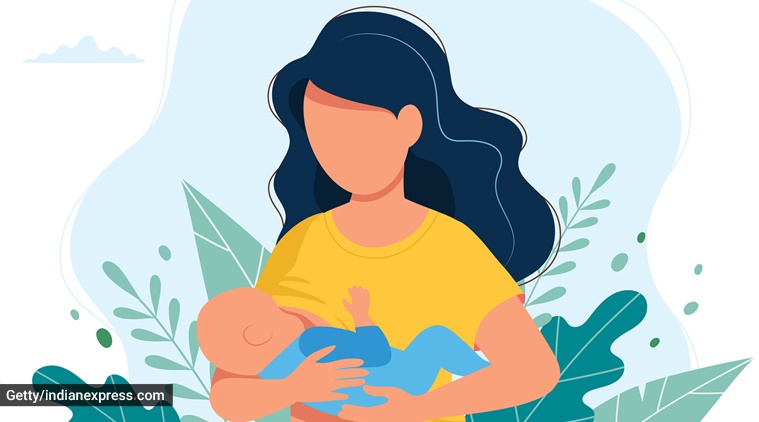World Breastfeeding Week: All you need to know about breastfeeding during the pandemic
World Breastfeeding Week is observed between August 1-7 annually

COVID-19 has not only eclipsed our lives and healthcare system, it has also posed various unprecedented challenges, including for pregnant women and newborn children. And when we talk about newborns, breast milk invariably becomes an imperative topic. In fact, breast milk plays an important role in preventing life-threatening infections which can significantly contribute to reducing the burden on the healthcare system, say experts. But, there are numerous questions that loom in this particular situation despite the WHO, UNICEF and various organisations unequivocally recommending breastfeeding, points out Dr Shalini Chico a paediatrician at the Fortis La Femme Hospital, Bangalore. She, however, adds that “promotion and distribution of infant milk substitutes and feeding bottles during the Covid-19 pandemic is harmful and should be condemned.”
READ| World Breastfeeding Week: Breastfeeding is safe after anaesthesia, says Association of Anaesthetists
Here are some FAQs that Dr Chico answers. Take a look.
Can COVID 19 pass through breastmilk?
“Research so far has not detected the ‘replication-competent active Covid virus’ in breast milk. However, limited evidence has detected strands of the viral RNA in breastmilk, which is not capable of causing infection in the baby” shares Dr Chico. Thus, “breastfeeding benefits outweigh the potential risks of transmission and illness associated with Covid19”, ensures the paediatrician.
How can women with suspected or confirmed COVID 19 safely breastfeed?
“Though the virus does not pass through breastmilk, there is a chance of spread through respiratory droplets/contact, which can be minimised if appropriate infection prevention and control measures are observed,” informs the doctor. Thus, it is important to wash your hands frequently along with using an alcohol-based sanitiser before touching the baby. The doctor also suggests making sure you are wearing a mask even when breastfeeding to prevent the spread of infection via respiratory droplets. It is also important to ensure that all surfaces that the mother touches are disinfected regularly.
What if the mother is too sick to breastfeed?
“The ideal scenario would be to practice rooming-in, that is, ensure the baby and mother are in the same room, next to each other, in a dedicated COVID postnatal ward, to ensure exclusive and unhampered breastfeeding”, she says. The doctor, however, adds that this process can only be implemented when the mother is COVID positive, but not seriously ill.
If the mother is too sick and both the mother and the baby have to be separated, then expressed breast milk i.e pumped milk from the mother is sent across to the baby and fed by a spoonor tube feed if the baby is too preterm, is advised. “In the present scenario, with imposed lockdowns, the paucity of staff and decreased numbers of donors, this scarce resource is reserved for preterm babies in the NICU” shares Dr Chico.
For more lifestyle news, follow us: Twitter: lifestyle_ie | Facebook: IE Lifestyle | Instagram: ie_lifestyle
? The Indian Express is now on Telegram. Click here to join our channel (@indianexpress) and stay updated with the latest headlines
For all the latest Lifestyle News, download Indian Express App.
Source: Read Full Article



